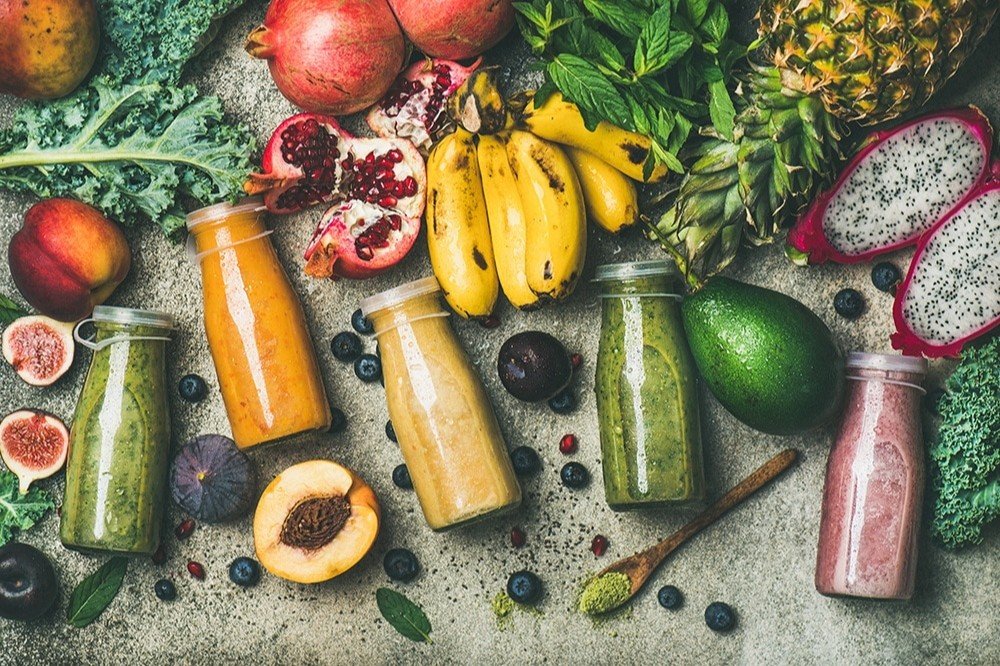
What You Need To Know About Juicing For Nutrition
Many people just do not like the taste of some vegetables. Some of these people were chastised, when they were younger, for not cleaning all the vegetables from their dinner plate. If the thought of eating whole fruit to fulfill your recommended daily requirements of essential nutrients leaves a sour taste in your mouth, the following tips and hints for preparing fresh juice at home will help you start smiling again.
Get a masticating juicer. Masticating juicers are able to extract the juice without the loss of nutrients by using a lower speed and gentler action. The juice that comes from a masticating juicer can also be stored better, too.
If you are juicing due to a health concern, start with dark green veggies as the base for your juice. Try making half to three quarters of the juice consist of spinach or broccoli juice. Other dark green vegetables will do as well, giving your juice an added health kick. Make the remaining portion tasty with fresh and flavorful fruits.
Some very effective ingredients for juicing concoctions are chard, parsley, broccoli, kale and spinach. For maximum health benefits, have at least half of the ingredients in your juices be these greens, and add other vegetables for flavor. Fruit juice generally contains more sugar than the juice from greens and usually isn't as healthy for you.
Enjoy your juice, and try to drink it slowly. Try to savor the juice with time, and taste all of the flavors. Start digestion in your mouth by mixing with your saliva.
Use the colors of your fruits and vegetables to help you figure out which nutrients they provide. Fruits range in color, they also vary in minerals and nutrients. These differences make for a broader flavor range to choose from and provide you with proper nutrition.
Research your fruits and vegetables before you create. You'll find a variety of minerals, vitamins and other nutrients in each produce item. Maximize your daily intake of nutrients by getting the best blend of produce. You will not only supply your body with the right nutrients, but also find some interesting blends you may enjoy.
Keeping juice in the refrigerator can be handy, but the juice may turn color. No one wants to drink juice that has gone from a bright color to grey or brown. What you can do in order to maintain the bright color is to add around two fresh teaspoons of lemon juice. The lemon won't be overpowering, and the citric acid from the lemon will act as a preservative.
Consult your physician before you make anything other than a vegetable juice if you have diabetes or hypoglycemia. Fruits are naturally high in sugar, which can alter your blood glucose levels. Keep track of the amount of fruit you add to your juices so you can regulate your sugar intake. Vegetables seldom present a blood glucose concern, but keep in mind some vegetables can affect blood coagulation, an important consideration if you are using prescription blood thinners.
Listen to your body as you drink various juices. You may drink something that does not agree with your system. If you try a new recipe that leads to gastrointestinal upset, you should try to identify the problematic ingredient. Was it a citrus fruit or a different variety of vegetable that you had never eaten before? Then, you will be able to eliminate these products or use small amounts to get your body used to them.
Ginger is an incredible food which can help soothe gastrointestinal upset. Add it to your juices to not only add flavor but also a healing touch. Ginger has anti-inflammatory properties that can also help to heal any damage done to the digestive system by acid reflux disease or peptic ulcer disease.
Fruits and vegetables contain phytochemicals that can remove any carcinogens from the body. Put as many phytochemicals into your juice as possible by using foods rich in this helpful nutrient.
Drink your juice quickly. It is crucial to remember that the nutritional value of juice begins decreasing as soon as the juice has been made. When juice sits around, it loses nutrients. It is therefore advisable to drink your juice as soon as possible.
When you are making your own juice, it is important to recognize that all fruits are different. It may require a special appliance to extract juice from certain citrus fruits, including mandarins, oranges, and tangerines. Use care when juicing melons; melon juice often tastes bad when juiced with different fruits.
Dark green vegetable are one of most nutritious to add to a juicing routine. Many people have trouble with their strong taste, however. This isn't usually true, though. You can make the juice taste anyway you want with different ingredients. If you prefer juices to have a sour touch, add a lime or two. If you have more of a sweet tooth, an apple or two will add some desired sweetness.
Stay away from very sweet fruits as you juice. While sweet juice has a delicious flavor, it could play havoc with your blood glucose. As an alternative, choose some tasty vegetable produce, and pop these into the juicer instead. Incorporate fruits only occasionally as a treat, but for the most part, they should be avoided.
In order to encourage frequent juicing, locate your juicing machine within easy reach on a kitchen counter. As such, your juicer will serve as a daily reminder.
When making vegetable juice, always start with vegetables you like. You should like the juice, not dread it. If you stick to those vegetables you already like, you will look forward to drinking the juice, too.
To ensure that you're getting enough fiber when juicing, it actually helps if you put the pulp into your juices after they're blended. Pulp is full of fiber and extra nutrients. You can vary the amount you add based on your own preferences, but the more fiber, the better.
It has been proved that fruits and vegetables are a great resource for getting all of the nutrients that you body needs. Now all you need to do is apply the information you have learned here, and let this expert advice be your guide to all things juicing.












